How are Distractions and Procrastination Hindering Your Progress in Life and Business?
From the endless notifications on our smartphones to the constant pull of social media, it's easy to get sidetracked. These distractions, along with procrastination, can sabotage our ability to focus, be productive, and live life to its fullest potential. Managing both effectively is crucial for achieving success, not only in business but in life.
The Challenge of Distraction
Distraction has become a part of daily life. Whether it’s the allure of the next viral video or a never-ending stream of emails, we live in a world where our attention is constantly being fought over. These distractions pull us away from the tasks that matter most, making it harder to accomplish our goals and stay focused on our long-term vision.
At its core, distraction is about avoidance. We often turn to distractions as a way to avoid difficult or uncomfortable tasks. Whether it's the pressure of completing a big project at work or tackling personal growth, the ease of mindlessly scrolling through social media can offer temporary relief. But this avoidance only leads to more stress and anxiety in the long run, coupled with a reduction in concentration by 60%.
The Nature of Procrastination
Procrastination is often closely linked with distraction. It’s the habit of putting off important tasks, often until the last minute. Many people procrastinate because they feel overwhelmed, don’t know where to start, or fear failure. Like distraction, procrastination is a form of avoidance that can lead to missed opportunities, increased stress, and diminished success.
When we procrastinate, we tell ourselves that we’ll get to the task “later,” but that later often never comes, or it comes at a time when we’re rushing to meet a deadline. This can lead to lower-quality work and a constant feeling of being behind. Worse, procrastination can become a vicious cycle: the more we put things off, the more anxious we become, and the more we seek distractions to escape that anxiety.
The Cost of Distraction and Procrastination
The cost of distraction and procrastination is steep. It affects not only your work but also your overall well-being. In business, it can mean missed deadlines, incomplete projects, and lost opportunities. Personally, it can lead to feelings of dissatisfaction, unfulfilled potential, and stress.
When you allow distractions and procrastination to take over, you end up living reactively instead of proactively. Rather than being in control of your time and energy, you are constantly responding to whatever grabs your attention. This reactive approach to life can leave you feeling unfulfilled, as you spend more time on things that don’t align with your values and goals.
Managing Distractions to Live Fully and with More Intention
To live fully and achieve success, managing distractions is key. The first step is recognizing the distractions that consume your time and energy. These can be external, like social media or a noisy environment, or internal, such as daydreaming or overthinking. By identifying your biggest distractions, you can start to create strategies to minimize their impact.
1. Set Clear Boundaries
One of the most effective ways to manage distractions is to set clear boundaries. This might mean setting specific times during the day when you check your email or turning off notifications while working on important tasks. Creating a distraction-free zone in your home or office can also help you stay focused.
By setting boundaries, you create space for deep, focused work. You give yourself permission to be fully present in whatever task you’re working on, whether it’s a business project or spending time with family.
2. Prioritize and Plan
Another strategy for managing distractions is to prioritize and plan your day. When you have a clear plan in place, it’s easier to stay on track. Start by identifying the most important tasks that will have the biggest impact on your goals. These are your "big rocks" – the tasks that, if completed, will move you closer to success.
Once you’ve identified your priorities, create a schedule that allocates time for these important tasks. Be realistic about how much time each task will take and break larger projects into smaller, manageable steps. Planning in this way helps you avoid feeling overwhelmed and reduces the temptation to procrastinate.
3. Use Time Blocks
Time blocking is a technique where you allocate specific blocks of time for focused work, followed by short breaks. During your time block, commit to working on one task without distraction. This method helps train your brain to focus for short bursts of time, making it easier to resist distractions.
Use tools like working for 25 minutes and then taking a 5-minute break. After four rounds, take a longer break. This approach helps maintain high levels of focus and productivity, while also allowing for rest and renewal. Plan unstructured time and put that into your schedule. By doing this, you will no longer think about unstructured time as being wasteful or unproductive.
Overcoming Procrastination
Procrastination can be more challenging to overcome than distraction because it’s often rooted in deeper emotional or psychological issues. However, with the right strategies, it’s possible to break the cycle of procrastination and start making progress toward your goals.
1. Break Tasks into Smaller Steps
One reason we procrastinate is that tasks can feel too big or overwhelming. By breaking larger tasks into smaller, more manageable steps, you reduce the feeling of being overwhelmed. Each small step becomes easier to tackle, and as you complete each one, you build momentum.
2. Set Deadlines and Accountability
Another effective strategy is to set deadlines for yourself, even if they’re self-imposed. Deadlines create a sense of urgency, which can help you overcome the tendency to procrastinate. Share your deadlines with someone you trust and ask them to hold you accountable.
3. Focus on the Reasons
When procrastination strikes, take a moment to remind yourself of the reason the task is important. Connecting the task to your larger goals and values can help you push through the discomfort. Whether it’s advancing your career, improving your health, or creating more meaningful relationships, focusing on the long-term benefits can give you the motivation to take action.
Living Fully and Succeeding in Business and Life
Managing distractions and overcoming procrastination are essential for living life fully and achieving success. When you take control of your time and focus, you create space for the things that matter most. You’ll be more productive, less stressed, and better able to achieve your goals, both in business and in life.
Living fully means being present, intentional, and aligned with your purpose. It’s about making the most of each moment, whether you’re working on a big project or enjoying time with loved ones. By managing distractions and procrastination, you can live a life that’s not only successful but deeply fulfilling.
Schedule a complimentary strategy call and we will develop a plan for you to live more fully and with greater intention.
Your coach,
Savannah

